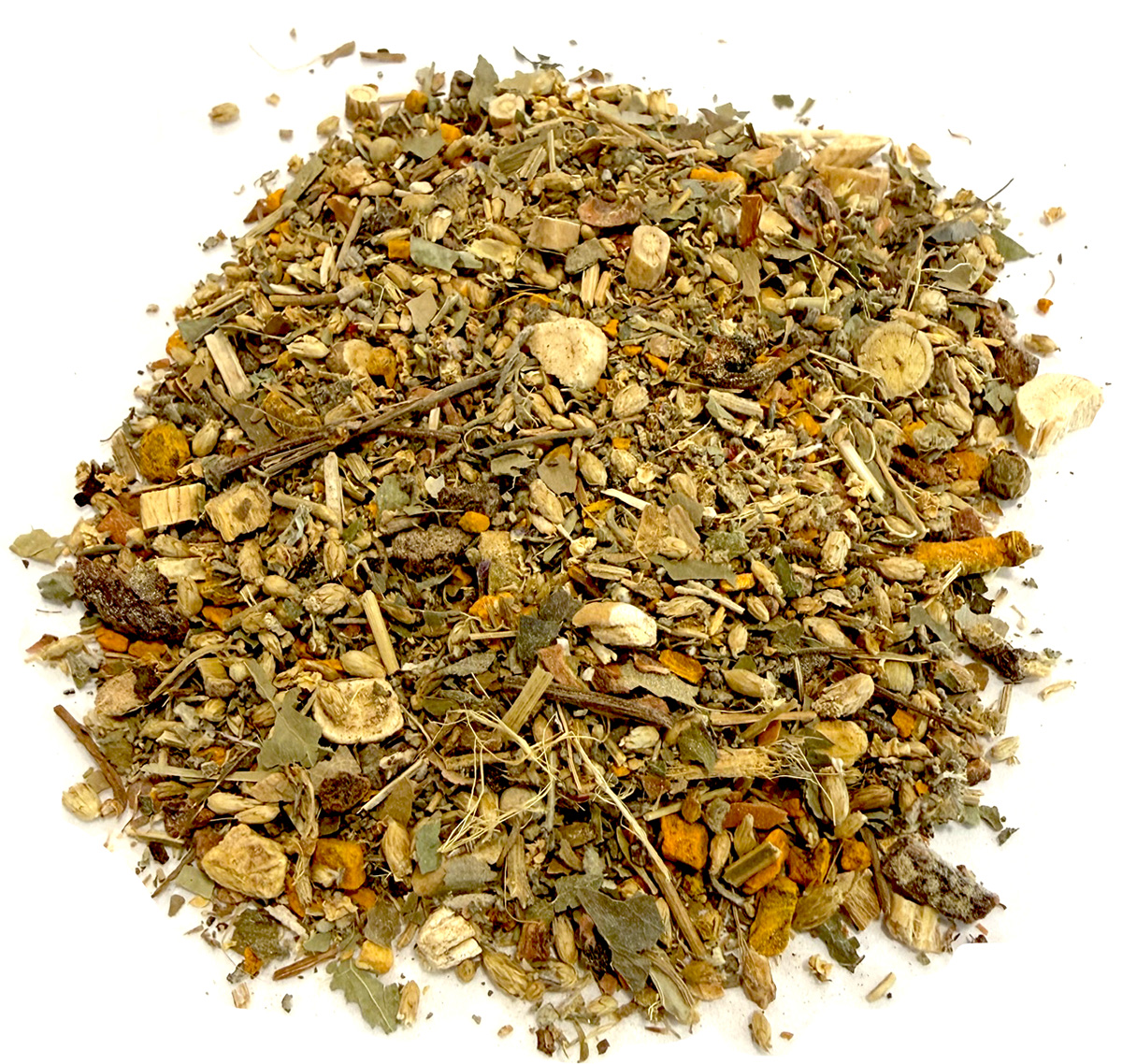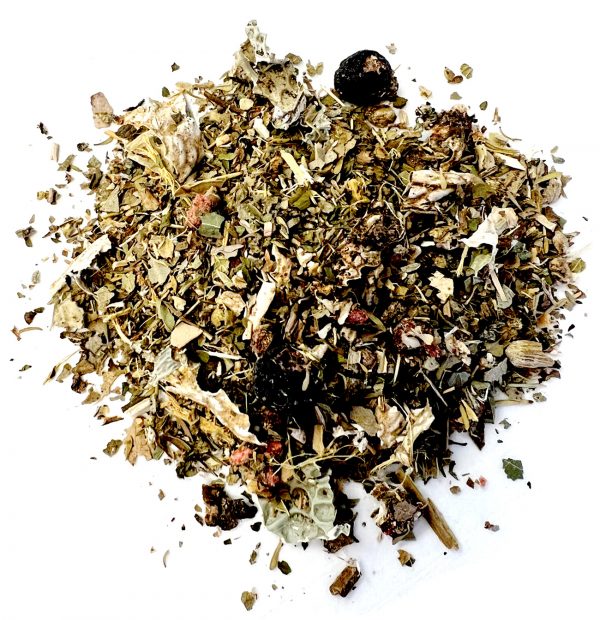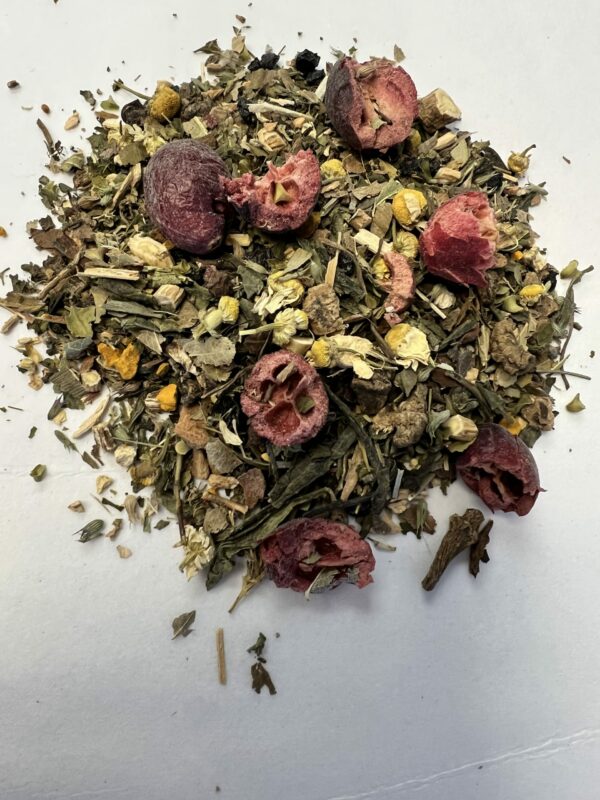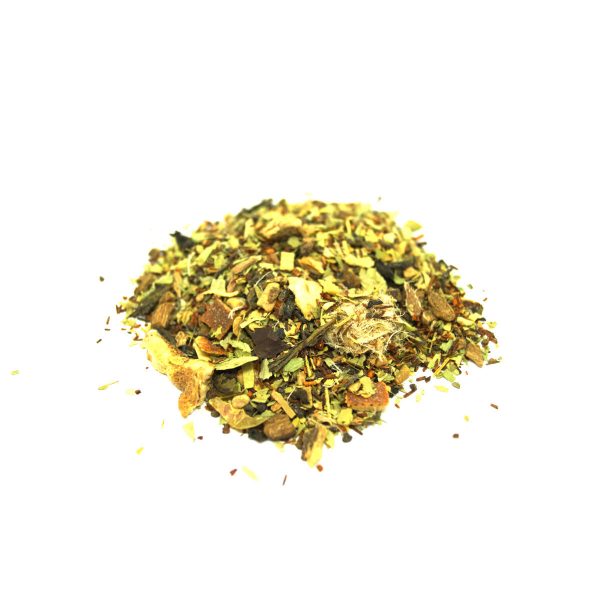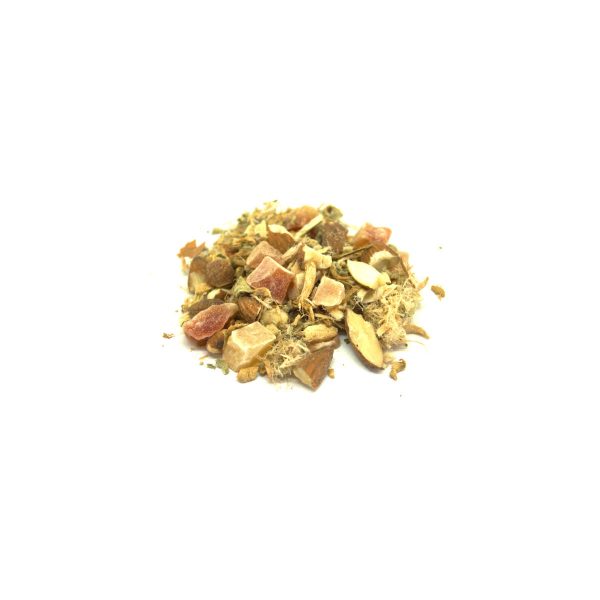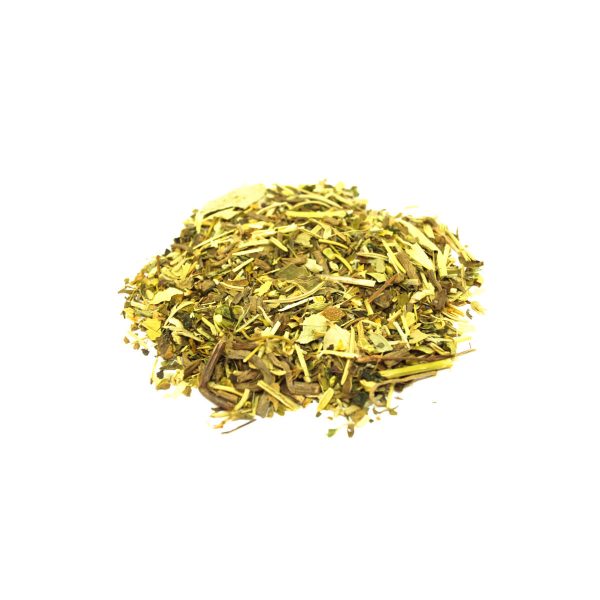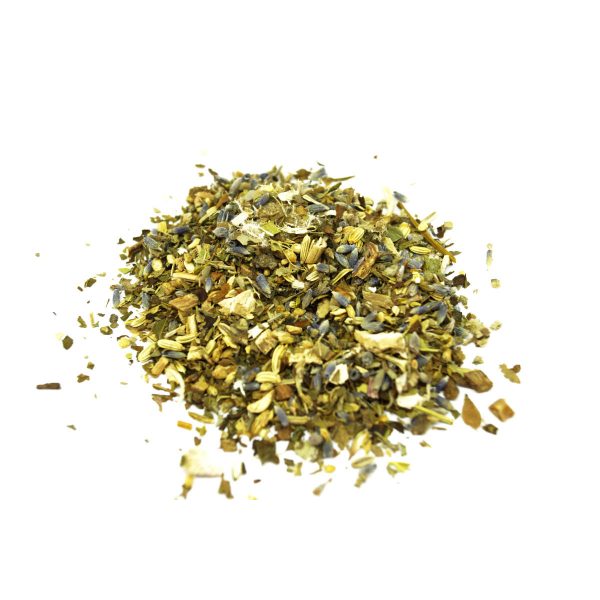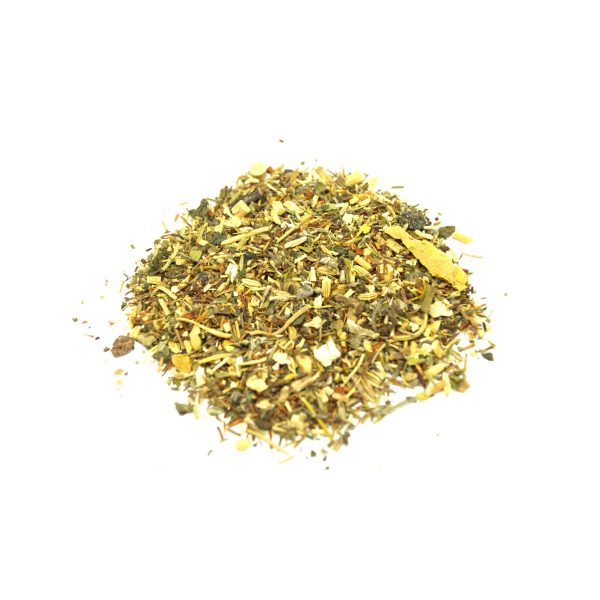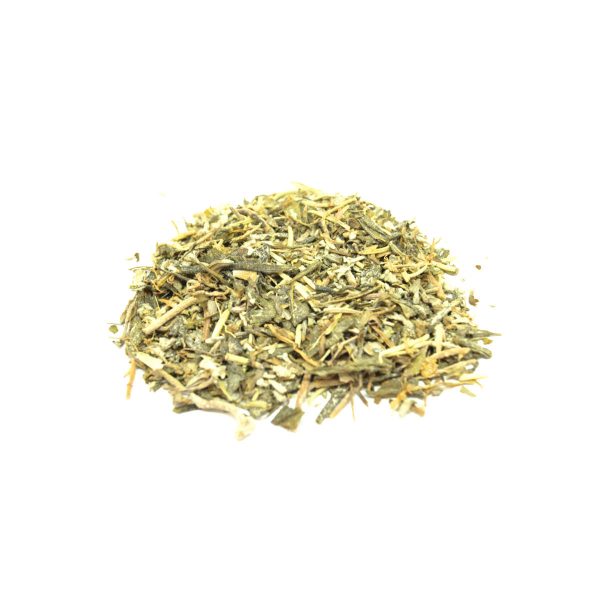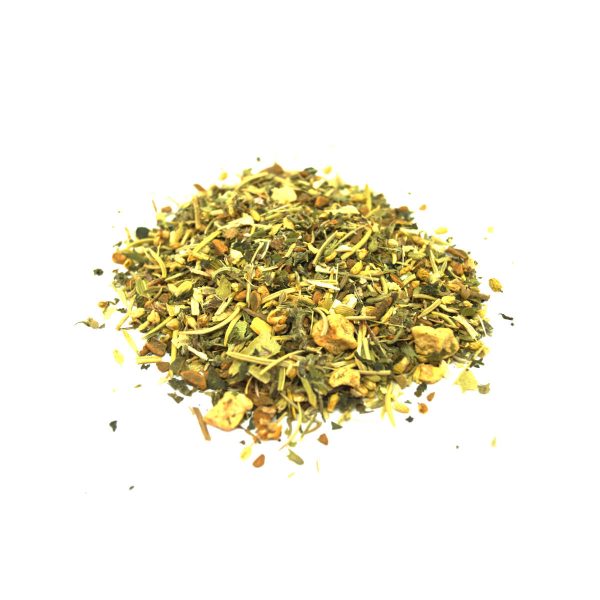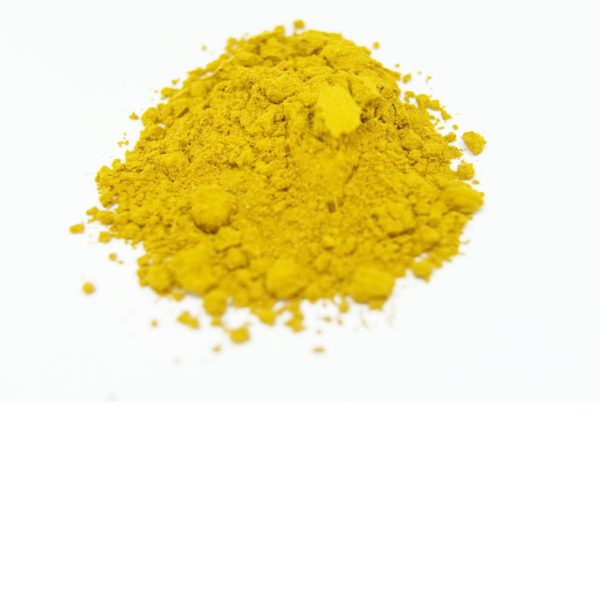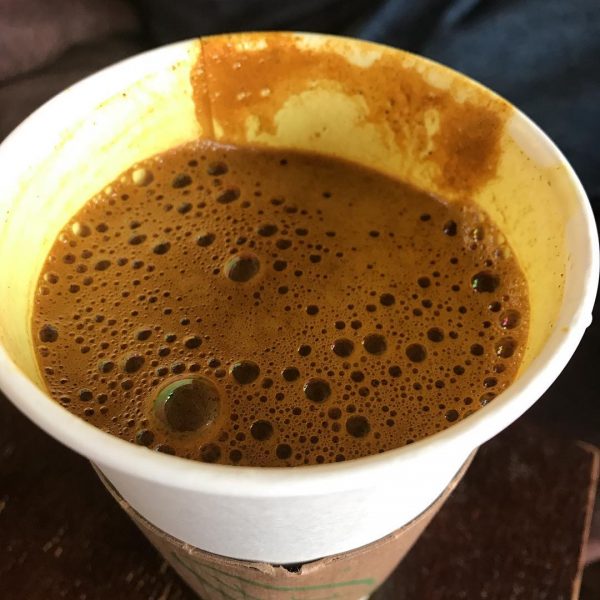With over 400 different kinds of loose tea that will exceed all tea lover’s expectations. You’re sure to find something you will love! All handcrafted by us in North Dakota.
Chronic Obstructive Pulmonary Disease ~ COPD
From: $18.00
The blend was built to help with chronic bronchitis and emphysema which are a part of the COPD family of concerns. This blend may help with the symptoms that come with this diagnosis such as cough, shortness of breath, chest tightness and excess mucus.
SKU:
Chronic Obstructive Pulmonary Disease ~ COPD
Categories: Mushroom Tea, Teas
Tags: All natural, Handcrafted
Description
Blender’s Notes Chronic Obstructive Pulmonary Disease ~ COPD:
Steep Me Self-Help combinations are a wonderful way to get health benefits outside of the standard tea leaf. In this combination of herbs are to help the management of chronic bronchitis and emphysema which are a part of the COPD family of concerns. This blend may help with the symptoms that come with this diagnosis such as cough, shortness of breath, chest tightness, and excess mucus. Chronic obstructive pulmonary disease (COPD) is an ongoing lung condition caused by damage to the lungs. The damage results in swelling and irritation, also called inflammation, inside the airways that limit airflow into and out of the lungs. This limited airflow is known as an obstruction. Symptoms include trouble breathing, a daily cough that brings up mucus and a tight, whistling sound in the lungs called wheezing. COPD is most often caused by long-term exposure to irritating smoke, fumes, dust, or chemicals. The most common cause is cigarette smoke. Emphysema and chronic bronchitis are the two most common types of COPD. These two conditions usually occur together and can vary in severity among people with COPD. Chronic bronchitis is inflammation of the lining of the tubes that bring air into the lungs. These tubes are called bronchi. Inflammation prevents good airflow into and out of the lungs and makes extra mucus. In emphysema, the small air sacs of the lungs, called alveoli, are damaged. The damaged alveoli cannot pass enough oxygen into the bloodstream. Although COPD is a condition that can get worse over time, COPD is treatable. With proper management, most people with COPD can control symptoms and improve their quality of life. Proper management also can lower the risk of other conditions linked to COPD, such as heart disease and lung cancer. COPD symptoms often do not appear until a lot of lung damage occurs. Symptoms usually worsen over time, especially if smoking or other irritating exposure continues. Symptoms of COPD may include Trouble catching your breath, especially during physical activities. Wheezing or whistling sounds when breathing. An ongoing cough that may bring up a lot of mucus. The mucus may be clear, white, yellow, or greenish. Chest tightness or heaviness. Lack of energy or feeling very tired. Frequent lung infections. Losing weight without meaning to. This may happen as the condition worsens. Swelling in ankles, feet, or legs. People with COPD are also likely to have times when their symptoms become worse than the usual day-to-day variation. This time of worsening symptoms is called an exacerbation (eg-zas-er-bay-shun). Exacerbations can last for several days to weeks. They can be caused by triggers such as smells, chilly air, air pollution, colds, or infections. Symptoms may include Working harder than usual to breathe or having trouble breathing. Chest tightness. Coughing more often. More mucus or changes in mucus color or thickness. Fever. COPD – Symptoms and causes – Mayo Clinic
We started this blend with Turmeric. Turmeric has an active ingredient called curcumin, a highly potent anti-inflammatory compound that may reduce airway inflammation when paired with our triple peppercorns. Researchers found that COPD patients who took curcumin as part of their diet had reduced instances of a specific type of colonizing bacteria, non-typeable Haemophilus influenzae (NTHi), which they believe causes the inflamed airways commonly seen in the disease. Next, we added Licorice Root which research suggests that glycyrrhizin may improve the benefit of beta-2 agonist bronchodilators in people with COPD. With that we added ginger root which is a spicy herb and is extremely beneficial to lung health. Ginger may also help eliminate congestion, as well as ease sore throats plus containing powerful antioxidants and natural antibiotics. We added Thyme to this blend which is an effective decongestant and antioxidant and is often used in treating respiratory conditions. Also in this recipe is Ginseng. This has a history of use in Traditional Chinese medicine because of its unique healing powers related to its anti-inflammatory and antioxidant effects. Red sage is also a part of this blend as it has been found to protect the lining of blood vessels when oxygen is low or temporarily halted and can help improve exercise tolerance and reduce pulmonary artery pressure. The beautiful yarrow flower is added because studies have found that it can dilate or widen your bronchi. This makes it helpful for people with asthma and other lung conditions. We used lungwort because it contains compounds of saponins, antioxidant flavonoids like quercetin as well as allantoin and tannic acid. It is thought to have antibiotic and wound healing uses. Lungwort also has an extremely high mucilage content. This makes the plant useful in treating a variety of chest conditions like wheezing and coughing and is particularly useful for treating bouts of chronic bronchitis, chronic coughs, asthma, and even whooping cough. The mucilaginous nature of the leaves also makes them useful in treating a sore throat. Echinacea has traditionally been used to help prevent upper respiratory infections related to the flu and the common cold and help the patient have shorter and less severe COPD flares. Astralagus is a staple in China, is has been used to boost the immune system, prevent colds, and treat respiratory infections. In addition to its asserted antibacterial and anti-inflammatory properties, astragalus is believed to improve lung function and decrease fatigue.
We also included Elderflower. Elderflowers can help reduce airway inflammation and oxidative stress that contribute to COPD symptoms. Elderflowers may help loosen mucus and ease coughing and reduce infectious triggers of exacerbations. We also included Strawberry Leaf. Strawberry leaf is used for throat soothing or comfort and have mild antioxidant and astringent properties. It has anti‑inflammatory from its phytochemistry, which could theoretically reduce airway irritation and has a soothing effect described in traditional use that might ease throat irritation or mild cough. Next, we added in English Ivy because it is used as an expectorant/mucolytic and may reduce cough and loosen mucus. Ivy saponins thin mucus and increase mucus clearance, which can ease productive cough and improve airflow in obstructed airways. Compounds in ivy may relax bronchial smooth muscle via influence on beta2‑adrenergic signaling, potentially improving airflow temporarily and the flavonoids and saponins in ivy show antioxidant and anti‑inflammatory properties. Gingko Biloba was added because Ginkgo biloba is not a proven treatment for COPD but contains antioxidants and anti‑inflammatory compounds that may modestly affect symptoms tied to airway inflammation and circulation. It shows improved microcirculation via vasodilation and increased nitric oxide that may indirectly support tissue perfusion in pulmonary and systemic circulation. Next, we added horseradish because it can help acutely loosen mucus and relieve nasal/chest congestion, but it is not a proven therapy that improves COPD progression, lung function, or exacerbation rates. The pungent isothiocyanates stimulate secretions and nasal/chest clearing, producing rapid thinning or movement of mucus and the flavonoids and vitamin C it provides has mild antioxidant and anti‑inflammatory activity. Finally, we added in Anise. Anise can provide short‑term symptomatic relief for cough and mucus by acting as an expectorant, antispasmodic, and mild bronchodilator. The oils in anise stimulate thinner mucus secretions and improve mucus clearance, making coughing more productive. Anethole, the primary constituent, relaxes airway smooth muscle and may reduce bronchospasm, easing shortness of breath during spasmodic cough episodes. Anise flavonoids and anethole have demonstrated inhibition of proinflammatory pathways and antioxidative effects can reduce airway inflammation and the oils in anise show activity against respiratory pathogens in laboratory studies, so anise may help limit infectious triggers of exacerbation.
NOTE: “This/these claim(s) has/have not been evaluated by the Food and Drug Administration. This product is not intended to diagnose, treat, cure or prevent any disease.”
Features Chronic Obstructive Pulmonary Disease ~ COPD:
- Leaves can be infused all day! (They will not get bitter)
- Lots of individual flavor based on the ingredients.
- All Wildcrafted Herbs
- All Organic where Wildcrafted is not available.
- Full of natural antioxidants and Very Hydrating
- Sample Size ~ 1 oz will make 8-10 ~ 16 oz teas.
- Sealed Bag ~ 4oz will make 32-40 ~ 16oz teas
- Iced Tea ~ Always Double the amount of Tea for the same size cup!
- Per Serving ~ 1 tsp per 6 oz of H2O
- Recommend 3 tsp Per Day – resteep leaves 2-3 times.
- Caffeine: None
Ingredients: Steep Me Proprietary Organic and Wildcrafted Blend of Turmeric Root, Rainbow Peppercorns, Licorice Root, Ginger Root, Thyme Leaf, Ginseng Root, Red Sage, Yarrow Flowers, Lung Wort, Echinacea, Mullein, Astralagus Root, Elderflowers, Strawberry Leaf, English Ivy, Gingko Biloba, Horseradish and Anise.
Alternatively, try our Respiratory Mucus Phyto~Nutrition Tea OR Asthma Phyto~Nutrition Capsules OR Asthma Phyto~Nutrition Tea.
Not Safe for Pregnancy
Not Safe for Breastfeeding
NOTE: This/these claim(s) have/have not been evaluated by the Food and Drug Administration. The products offered by Steep Me Tea Apothecary -Franchisees – Wholesalers – Influencers or SteepMe.com are not intended to treat, cure, or prevent any illness or disease. If you have or suspect that you have a medical problem, consult with your physician for diagnosis or treatment. All gender specific blends are based on Gender Assigned at Birth. Use herbs as per instructions and always watch for any allergic reactions. You should always carefully read all product packaging and labels. Always consult your physician or health care provider before using any herbal products, especially if you have a medical problem. Steep Me Tea Apothecary and SteepMe.com and/or its proprietors assume no liability for any injury, illness or adverse effects caused by the misuse and/or use of the information or products presented
NOTE: When using Teas, Capsules, Tinctures and Micro-Nutrition to help with your ailment ~ please remember this is a marathon ~ we recommend an investment of time of at least 6 months to see positive change. Any gender specific blends are based on gender assigned at birth.
“Processed in a facility that also processes food containing milk, egg, fish, peanut, shellfish, soy, tree nuts, wheat, and sesame. May contain traces of milk, egg, fish, peanut, shellfish, soy, tree nuts, wheat, and sesame.”
Additional information
| Weight | 4 oz |
|---|---|
| Size | , , |
Benefits
When talking about the many types of tea, Tisane (Herbal Infusion) or Herbal Tea or Self-Help Tea is really not tea at all. It is made like a tea and all the same items are used to make it, but it does not contain the Camellia Sinensis Plant (unless stated), but is simply roots, flowers, leaves, and fruits put together is a combination that is made just like a tea. With that being said…the health benefits of a Tisane or Herbal teas are different. They can vary depending on the ingredients and combination of herbs so there are no blanket health benefits – just depends on the ingredients. For many, the best part of Tisane or Herbal Tea or Self-Help Tea is the fact that it is caffeine free naturally. Of course there are herbs that can be added to change that. The most popular Herbal teas include Chamomile, Peppermint, Spearmint, and any combination of fruit blends or infusions. Our Self-Help Teas are simply supplemental herbal combinations to aid with an occasional ailment specific to what may be happening in your life. The teas are built to work and are not build with any specific flavorings. The blends are tested to the minimum requirements laid out by Steep Me A Cup of Tea. The taste provided is natural to the herbs present in the blend. No flavorings added. This/these claim(s) has/have not been evaluated by the Food and Drug Administration. The products offered by Steep Me Tea Apothecary -Franchisees – Wholesalers – Influencers or SteepMe.com are not intended to treat, cure, or prevent any illness or disease. If you have or suspect that you have a medical problem, consult with your physician for diagnosis or treatment. Use herbs as per instructions and always watch for any allergic reactions. You should always carefully read all product packaging and labels. Always consult your physician or health care provider before using any herbal products, especially if you have a medical problem. Steep Me Tea Apothecary and SteepMe.com and/or its proprietors assume no liability for any injury, illness or adverse effects caused by the misuse and/or use of the information or products presented.
Tisane or Herbal Tea or Self-Help Tea
Related products
Happy Belly
From: $14.00
This is a great tea if you need to get going....this stimulant based blend will get the "poo" to "GO"!
Select options
This product has multiple variants. The options may be chosen on the product page
Heartburn
From: $14.00
This is a great option if you suffer from occasional heartburn. Great tasting tea that can help to sooth any heartburn you may feel.
Select options
This product has multiple variants. The options may be chosen on the product page
Insomnia Tea
From: $17.00
Select options
This product has multiple variants. The options may be chosen on the product page
Irritable Bowel Syndrome ~ IBS
From: $15.00
Looking for a great help to your Irritable Bowel Syndrome to slow down your going...this is a great blend that has been with us since 2008 to help with all your IBS concerns.
Select options
This product has multiple variants. The options may be chosen on the product page
Kick~in Cholesterol
From: $15.00
Select options
This product has multiple variants. The options may be chosen on the product page
Mental Sharpness
From: $15.00
Looking for a great tea to help keep you focused and on task...this is the blend...plus we do not use caffeine to do it!
Select options
This product has multiple variants. The options may be chosen on the product page
Tummy Tamer
From: $13.00
Looking for a great option for the occasional tummy ache! A great tea with ginger and peppermint to help with a sour tummy! Pregnancy Safe!!
Select options
This product has multiple variants. The options may be chosen on the product page
VytaliTEE ~ Inflammation & Golden Milk
From: $15.00
A great stir in for inflammation, clarity, pain, energy, arthritis, memory, swelling, nausea and digestion.
Select options
This product has multiple variants. The options may be chosen on the product page

